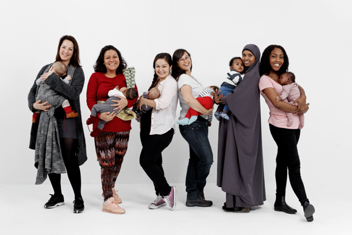Baby-Friendly Community and Health Services (BFC&HS)
Summary
Breastfeeding plays a crucial role both in early childhood development and in the prevention of cancers and other non-communicable diseases (NCDs) in mothers and children. Indeed, there is extensive literature demonstrating that breastfeeding saves lives, improves health, is environment-friendly, and reduces costs in all parts of the world, both high- and low-income countries. However, knowledge about the key role of breastfeeding has not resulted in improved rates: those in Europe are lower than in any other continent. The determinants of breastfeeding are multifactorial and there is a need of supportive measures at many levels, from legal and policy directives to social attitudes and values, women's employment conditions and family leave, and healthcare services, to enable women to breastfeed. When relevant interventions are delivered adequately, breastfeeding practices are responsive and can improve rapidly. The Baby-Friendly Hospital Initiative has been demonstrated to be effective in increasing breastfeeding rates. Despite being recommended by WHO/UNICEF since 1991, this evidence-based standard is still only partly implemented in European hospitals. The Norwegian “Baby-friendly community health services”, based on the Baby-Friendly Hospital Initiative, has been shown to increase rates of exclusive breastfeeding until 6 months and was assessed as a Best Practice for the prevention of NCDs by the EU Commission in 2022. This task includes the Best Practice "Baby-friendly community health services".
Specific objective
The specific objective of Task 6.5 is to implement the Best Practice “Baby-friendly community health services” and pilot action in new settings, to improve breastfeeding rates as a contribution to reducing the incidence of cancer and other NCDs later in life, starting from the first 1000 days of life (pregnancy to 2 years), with a focus on social and health inequalities.
Preparatory phase for Baby-Friendly Community and Health Services Best Practice and Pilots implementation
A context analysis and mapping of the present situation will be set up, including pre-implementation prevalence of breastfeeding. A Health Equity Audit, addressing transferability and sustainability of the practice in different contexts according to the WHO/UNICEF standards, will also be included. A communication plan will be developed.

Baby-friendly community and health services
Implementation of the Best Practice and Pilots
The implementation plan will address the WHO/UNICEF steps for the protection, promotion and support of breastfeeding at the community and health services level. The implementation plan will include monitoring and evaluation, according to the WHO/UNICEF standards, considering the potential of local/regional/national current data or surveillance systems.
Capacity building for Baby-Friendly Community and Health Services and Pilots
Capacity building aims to develop and strengthen the competencies, processes, and resources that the health services and community needs to protect, promote, and support breastfeeding and responsive parenting. Based on the assessment of learner needs, a European e-learning program will be developed for pre-service (University) and in-service training. In-person (blended) training sessions will be organized, involving different stakeholders at community and regional levels, according to their role in supporting breastfeeding and responsive parenting. Digital information about breastfeeding and infant feeding, with videos and short texts, will be translated and made available for health personnel and parents.
Create a breastfeeding-friendly environment in all settings
This sub-task is aimed to pilot action on breastfeeding protection, promotion, and support in different settings, including digital environment, work places, social and education settings and migration/emergency response system. Actions will be carried out to promote a network for an EU surveillance system on breastfeeding and to assess the state of the art based on the European Blueprint for action.
Promote a Nurturing Care Framework
Building on the Baby-Friendly Community and Health Services implementation process, a Nurturing Care Framework will be promoted, involving the task stakeholders, with a focus on the most vulnerable groups. The aim will be to build a common language and to promote good health, adequate nutrition (e.g. breastfeeding and appropriate complementary feeding), responsive caregiving, security and safety and opportunities for early learning, especially in contexts at higher risk of deprivation (e.g. families with low socio-economic status, refugees and migrants), with a higher range and intensity of interventions and services.